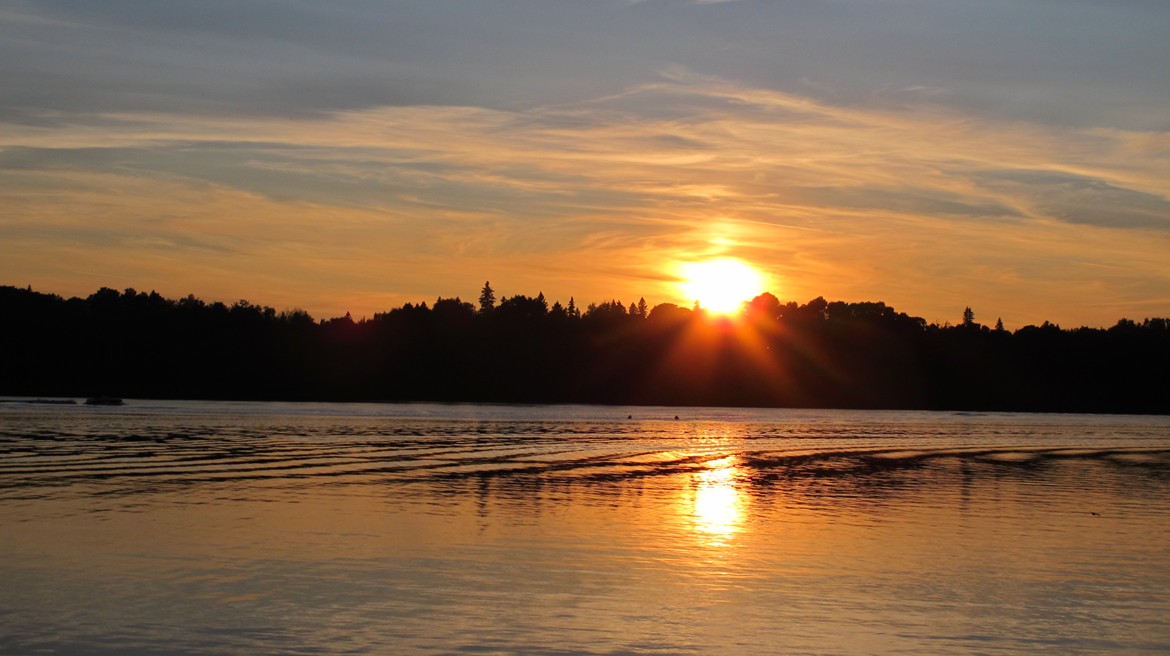Today’s post comes from MacGregor Point Provincial Park, courtesy of past Discovery Program Leader (now Project Lead) Matt Cunliffe.
Longer days give back extra hours of outdoor play and provide the perfect opportunity to explore our trails with the kids.
So don some comfy clothes and head to your favourite park (bonus: spring involves far less work for getting the young ones ready for a hike!).
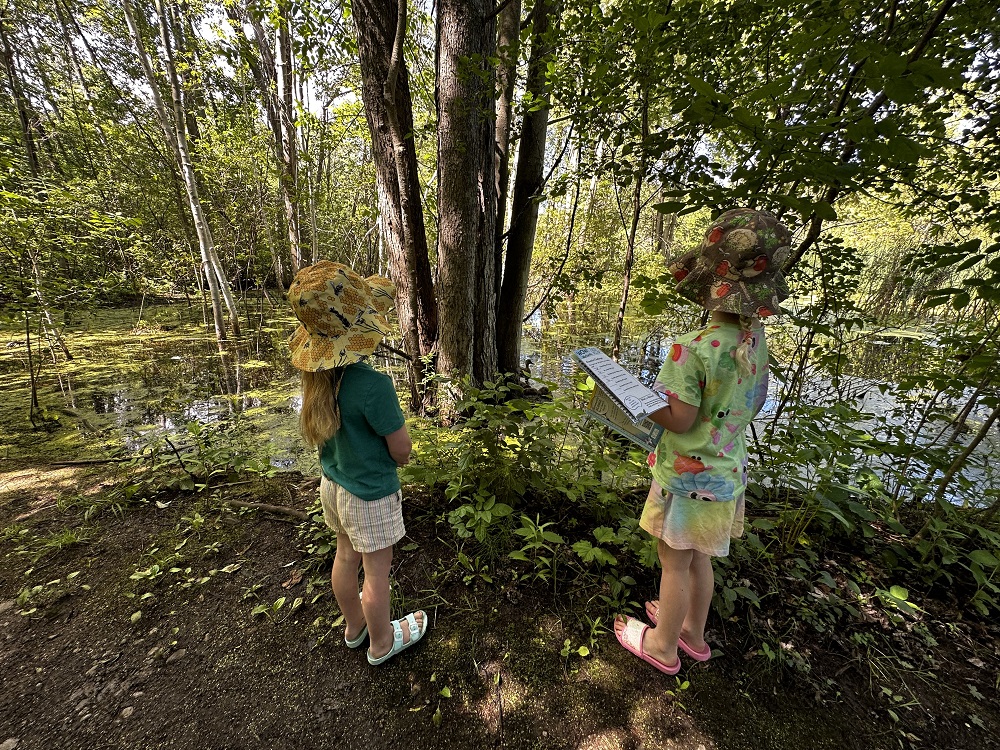
Taking in the sounds, sights and smells of the surrounding environment, now waking from its winter slumber, is a wonderful experience to share and chance to learn with your family.
Spring is the season of rebirth and renewal. It only seems fitting to learn new signs of spring, or even new aspects of the more traditional ones.
Here are 5 fun ways kids can celebrate the new season:
Spot the robin
The American Robin has long been an icon of spring’s imminent arrival, and hearing its call is enough to warm one’s mood.

Learning its call (cheerily, cheer up, cheer up, cheerily) from the other spring migrants is a good practice for those beginning to build their birding skills.
Make a game out of who can spot the robin first or who can pick one out by ear.
Practice your birdcalls
From the evening call of soaring gulls to the melody of the White-throated Sparrow, learn some calls of our migrating feathered friends and find your favourite sign of spring. Mine is the Red-winged Blackbird…a sure sign that spring is on its way!
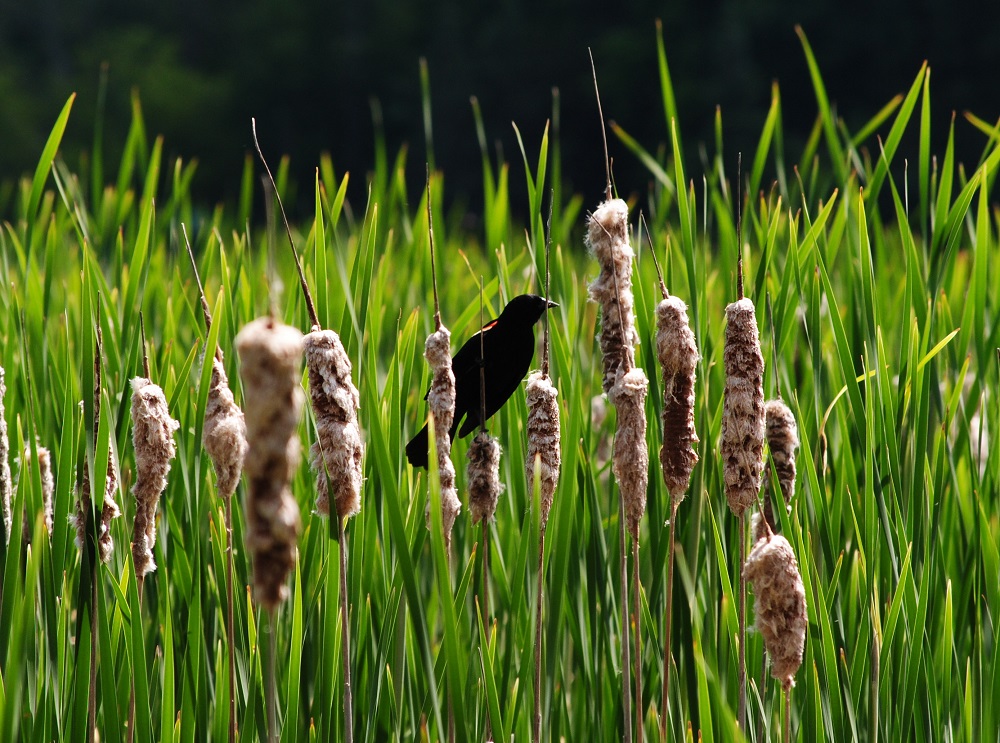
This wide-spread and talkative bird will shout (kon-ka-reeeeeeee!) from a multitude of wet or bushy habitats.
Once you’ve mastered a few different bird calls, challenge the kids to “name that bird” as a fun addition to hiking a trail.
Watch for turtles
The melted snow reveals so much. One of my favourite sights is the lazy look of a turtle sunning itself on a rock (a prime example that we are not the only ones that relish in the warming energy of our sun!).
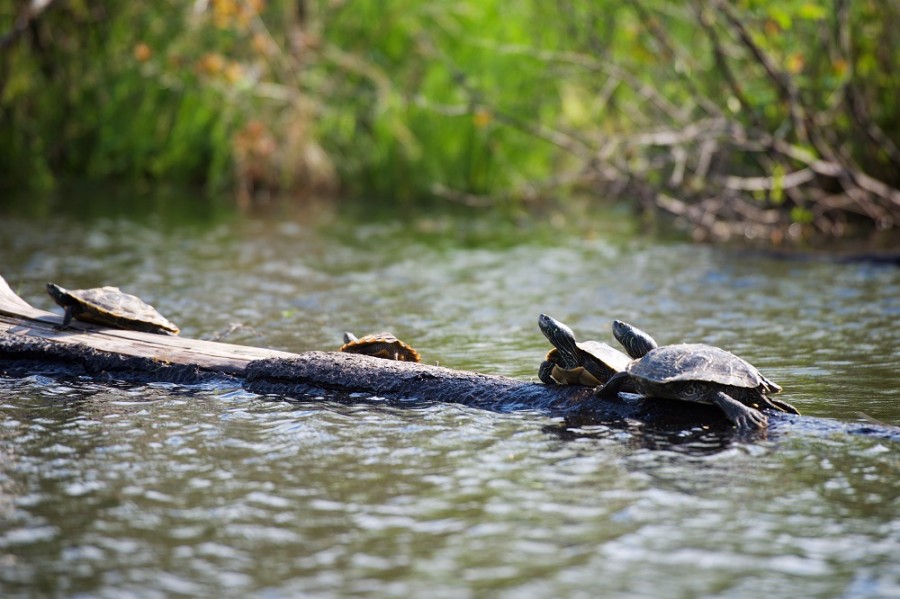
Turtles are ectothermic, meaning they require the heat from their surroundings to regulate their body temperature. These ancient, shelled creatures bask in the glow of the sun after spending months hibernating under the winter ice covering their wetland homes.
Spot the woodpeckers holes
But what if you’re not near a wetland? We aren’t always there to see wildlife first hand. But with a keen eye you’ll begin to recognize the evidence left behind.
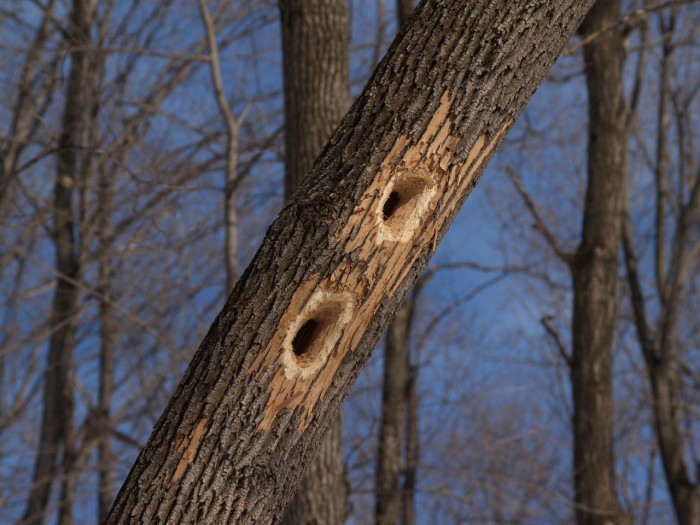
As the temperature continues to climb, the evidence will increase. Look for fresh woodpecker holes in sick or decomposing trees.
Each Ontario woodpecker makes a different mark when feeding, from the small toonie-sized holes of the Downy Woodpecker to the shockingly large rectangular cavities created by the Pileated Woodpecker (largest woodpecker in Ontario).
Breathe in spring scents
Spring rains bring fresh scents almost forgotten through the cold, dry winter. This time of year is a great reminder to take a break from the increasing speed of our day-to-day lives and literally stop to smell the roses (okay, so roses won’t be in bloom for a few months yet, but it’s still good practice!).
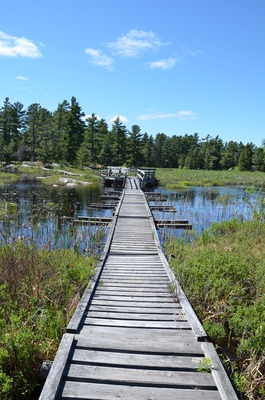
Instead, stop and smell one of my favourite spring scents: the Balsam Poplar.
This seemingly unexceptional deciduous tree produces fragrant leaf buds that survive the winter.
Ever wonder how some trees are better suited to handle the colder weather? Well, the leaves of the Balsam Poplar are coated with a resin which helps to protect the fragile buds during the turbulent winter weather through early spring.
As the weather warms and the buds begin to open the scent of the Balsam Poplar begins to explode!
Take a moment with the kids to smell the sweet aroma produced by this resin and I guarantee you’ll welcome it every year.
Fun fact: bees use these resin-coated buds for propolis, a known self-made antibiotic, for sealing their hives against the winter elements and to help keep out potential intruders.
Scout out your own signs of spring
Spot a busy beaver? What about the first spring wildflowers? Before long, your kids will discover their own traditional clues to look for each spring!
Ready for a family adventure? Find a park near you and get outside this spring!
We’d love to know what you find…feel free to share your discoveries with us via Facebook, Instagram, or X!

